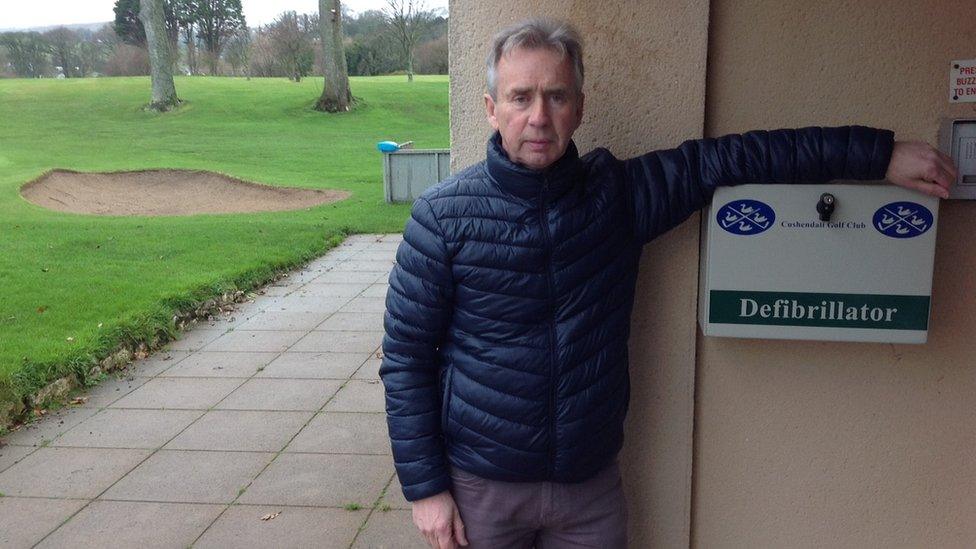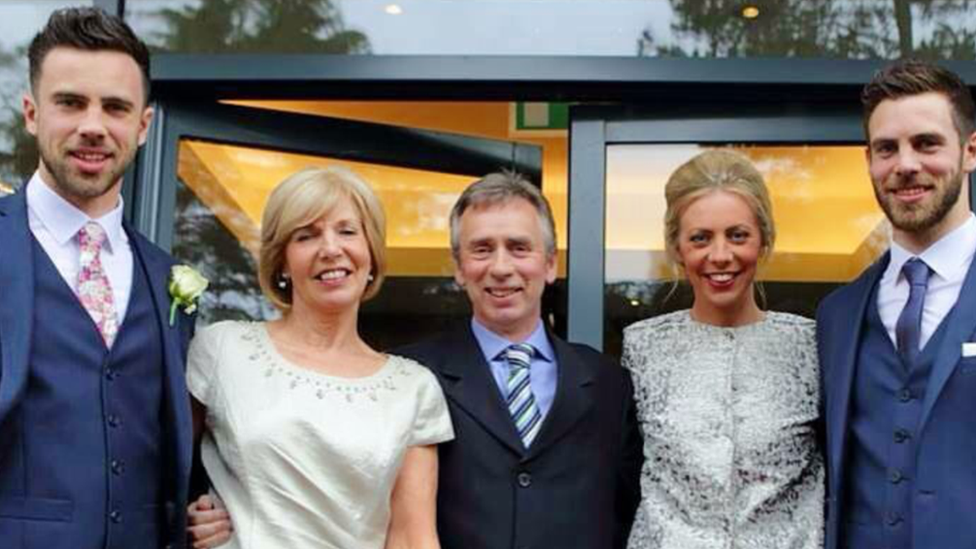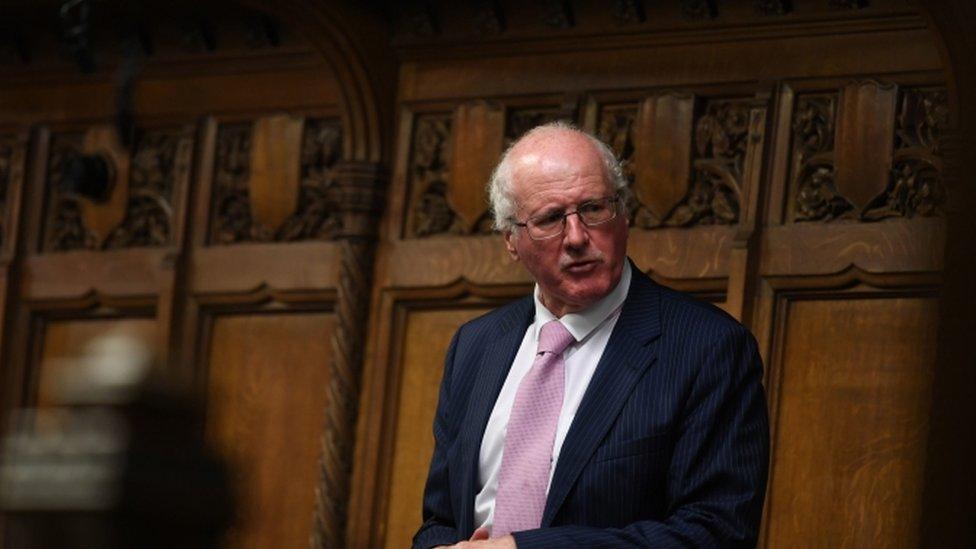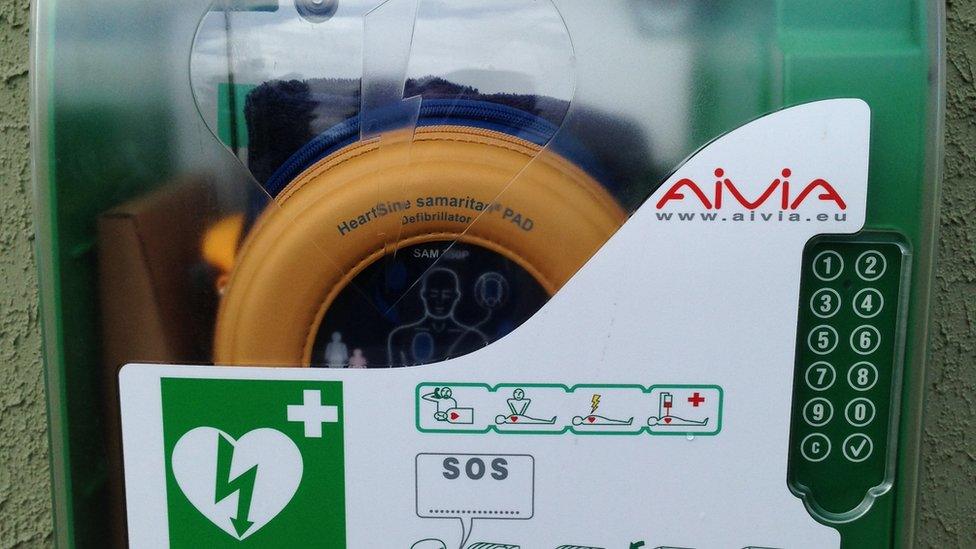Cardiac arrest survivor backs defibrillator bill
- Published

Hugh McManus was treated with a defibrillator after suffering a cardiac arrest at his Cushendall home in 2015
The government should fund the installation of defibrillators across public areas, a cardiac survivor has said.
Hugh McManus was treated with a defibrillator after suffering a cardiac arrest at his Cushendall home in 2015.
He said they should be as "commonplace as fire extinguishers".
DUP MP Jim Shannon has proposed a bill calling for their installation in public buildings, including education and sports venues.
Hugh, now in his 60s, was returning home from a golf course in Cushendall five years ago when he started to feel unwell.
By the time he got home, his condition had worsened and his son called an ambulance.
Cushendall, County Antrim, is not easily reached by ambulance but Hugh said he was lucky local man, Joe Burns, had CPR training, a defibrillator and was designated as a first responder.
He was able to assess Hugh's condition and applied two shocks through the device to bring Hugh's heart back to a more normal rhythm.
Hugh was later operated on at the Royal Victoria Hospital in Belfast.

Hugh (centre) seen here with members of his family, wants defibrillators to be made more widely available
He said he would not be alive if he had not received the defibrillator shocks.
"Ideally you would have one in every building where you have a large gathering of people, the window to save someone's life is so short.
"I'm immensely grateful to Joe and can never repay him - to save someone's life, what better thing could you do?".
He has now called on politicians to back the call for funding to ensure more life-saving devices are made publicly available.
No-one should be afraid to use the automated devices, which have been designed to only apply a shock where necessary, he added.
"It's totally understandable that someone might be fearful of getting it wrong, but the way I see it, the alternative is that a person doesn't have that chance to live," he said.

Strangford MP Jim Shannon has proposed a bill promoting access to defibrillators in public buildings
The Automated External Defibrillators Bill, external had its first reading in the House of Commons last week.
Mr Shannon said the push for "mandatory installations of these life-saving devices in our public buildings must be welcomed".
"We can no longer leave it to the public to hold raffles or coffee mornings," he said.
"We must consider it our duty as legislators to require Automated External Defibrillators to be present in public buildings, sporting facilities, places of education and wherever someone, be they young or elderly, might fall down and never get up again."
There are approximately 1,400 out-of-hospital cardiac arrests reported in Northern Ireland every year, according to the British Heart Foundation (BHF).
The charity estimates that fewer than 10% of people survive and that public-access defibrillators are used in fewer than 5% of cardiac arrests that happen away from a hospital.
'Mandatory training'
Fearghal McKinney, head of BHF NI, said cardiac arrest survival rates remained "shockingly low" in Northern Ireland.
"When someone has a cardiac arrest, every minute without CPR or defibrillation reduces their survival chances by around 10%," he added.
"Making defibrillators more readily available could help save lives, but must be supported by the roll out of mandatory CPR training in all secondary schools.
"We need to give everyone who suffers a cardiac arrest the best chance of survival. "
The bill presented by Mr Shannon had previously been proposed twice by MP Maria Caulfield, but was delayed by the dissolution of government.
It will move to a second reading on 5 February 2021.
Related topics
- Published18 May 2016

- Published3 October 2016
